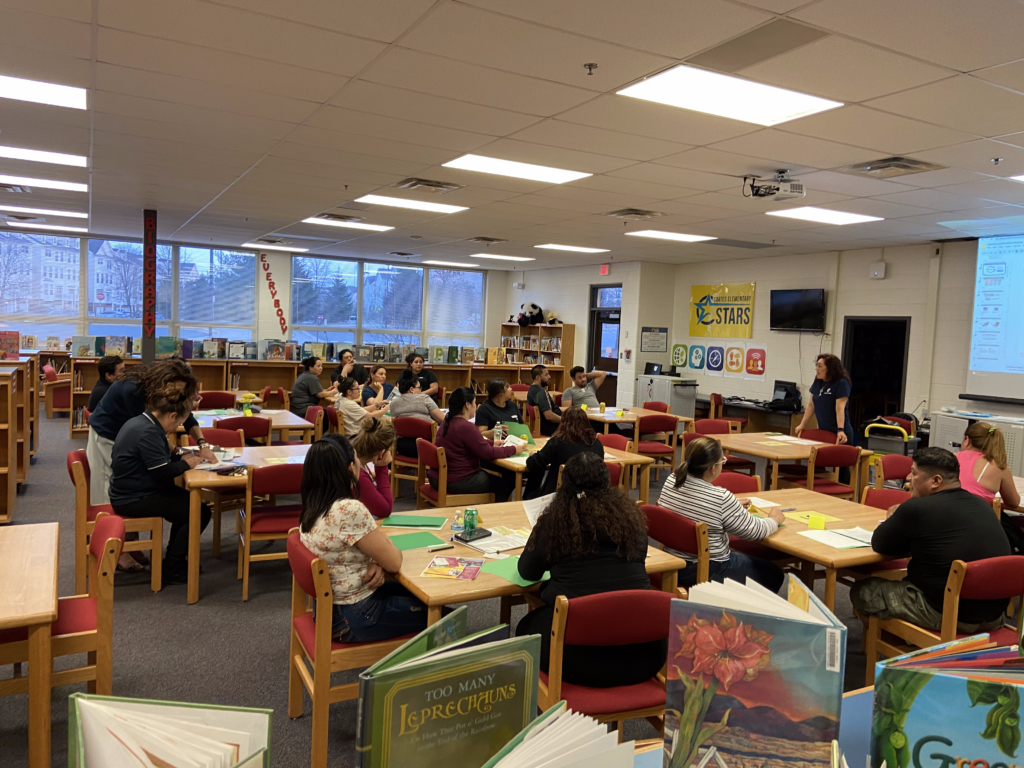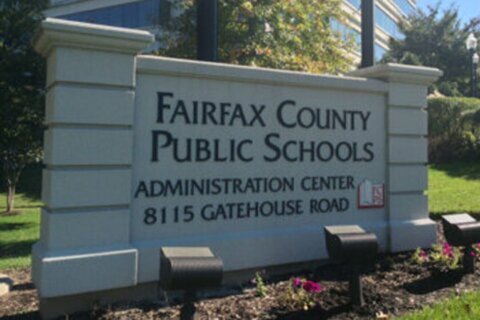
On a large screen in the front of the library at Lutie Lewis Coates Elementary School in Fairfax County, Virginia, an instructor posed a question to the 20 parents in the room on Thursday night.
“What is the internet?” the teacher asked in Spanish.
The group also discussed the difference between a laptop and desktop computer, and what digital literacy is.
The gathering was the latest installment of what the school calls the Coates Family Academy, which aims to teach parents how to best support their students and learn more about how to engage with their children’s education.
The group, which organizers said usually ranges from 15 to 20 parents, participates in weekly evening classes. The night starts with a meal, and while parents are in class, students either do homework, read to older kids from a nearby middle school or participate in a hip-hop dance class.
Nonprofit Edu-Futuro, which is involved in programming across Northern Virginia, funds various aspects of the academy. Principal Paul Basdekis said the program empowers parents to be more involved.
“They become better advocates for their children,” Basdekis said. “They become the role models at home, because the kids see them learning along, side by side.”
The school’s family liaison, Solangie McPherson, started the academy two years ago, anticipating it would be helpful at the school, where almost half of students are English language learners, the county said.
She noticed parents needed to learn things like how to volunteer, how to understand the curriculum and how to communicate with teachers and school administrators. Thursday night’s lesson was about technology.
All of the classes are held in Spanish, though McPherson said she wants future iterations to include other languages.
And, she said, parents do often get homework assignments, which range from worksheets to activities that can be completed as a family.
The classes, McPherson said, have been eye-opening for the school’s families. In some sessions, the parents learn basics, like how to fill out forms or what to ask for during a parent-teacher conference.
“They didn’t know they could do so many different things with [their kids],” McPherson said. “Working with them at home, creating rules … how to be an active parent in school.”
Brian Galindo said he’s become a regular at the Thursday sessions, and attends so he can learn how to better communicate with his kids.
“I want to be able to understand them, listen to them,” Galindo said. “And also let them know that we’re here for them.”
The parents have told McPherson that the classes boost their confidence, and their students are noticing it too.
At the end of the year, McPherson is hoping to plan a field trip to celebrate the current group’s accomplishments. And they expect to have a graduation ceremony, too.
“It doesn’t matter where you come from,” McPherson said. “It doesn’t matter what language you speak. We are here in the school and we speak just one language, right? We are here to help our kids and to be involved.”








